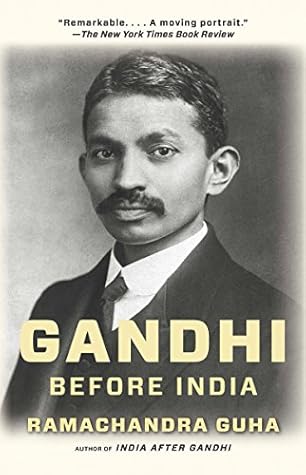More on this book
Community
Kindle Notes & Highlights
These factors explain, but do not excuse, the extraordinary harshness of a letter Gandhi wrote his son Harilal on 2 March. ‘I have your letter’, he began. ‘You apologize in every letter of yours and put up a defence as well. It all seems to me sheer hypocrisy now. For years, you have been slack in writing letters, and then come forward with apologies. Will this go on until death, I forgiving every time.’ Gandhi went on to compare Harilal with his brothers. ‘You violate all the conditions I had made and you promised to fulfil’, he complained: You were never asked to go in for studies at the
...more
must leave his wife Chanchi and children in Gujarat. ‘Weighing my advice against that of others’, concluded Gandhi, ‘do what you think best. I am a father who is prejudiced against you. I do not approve of your ways at all. I doubt whether you have any love for us. This statement sounds very harsh, but I see extreme insincerity in your letters.’30
In early March, Gandhi heard that his brother Laxmidas had passed away in Porbandar. He had been sick for some time. Although they had not met for more than a decade, in recent years they had become somewhat reconciled. Gandhi had forgiven or forgotten the intrigue that got the family into trouble in Porbandar in 1891. Laxmidas had gloried in the popular acclaim his younger brother was receiving in India for the work he was doing in South Africa.34 Gandhi’s other brother, Karsandas, had died the previous June. Preoccupied with the satyagraha, he did not comment in public on either death; but
...more
Kasturba then accused Gandhi of shielding Jeki. He answered that she was paranoid. The disagreement spiralled into a fearful row, by all accounts the most intense the Gandhis had had in the thirty years of their marriage. The husband’s version, outlined in a letter to Kallenbach, ran: Immediately she began to howl. I had made her leave all the good food in order to kill her. I was tired of her, I wished her to die, I was a hooded snake …
To atone for Jeki’s new lapse, and his own inadequate supervision, Gandhi decided to go on a two-week fast. Kasturba asked him to desist; she feared for his health. Her husband went ahead anyway. After it ended, he wrote to Kallenbach that this fast has brought me as near death’s door. I can still hardly crawl, can eat very little, restless nights, mouth bad … The fast was a necessity. I was so grossly deceived. I owed it to Manilal of Fiji, to Dr. Mehta, and to myself. It was one of the severest lessons of my life. The discipline was very great. Everyone around me was most charming. Mrs.
...more
One group however is absent from this otherwise capacious list – the Africans. To them alone were Gandhi’s connections too slight to merit a formal and public farewell. This was a sign in part of his own orientation, and a sign, perhaps in greater part, of the times.
What is the significance of his South African years in particular for those who know Gandhi as the leader of the Indian freedom struggle, as an icon and inspiration for non-violent movements the world over, as a prophet of inter-faith harmony, and more?
He had read the Koran (probably more than once), but was never really moved by it in the same way as he was moved by the Gita or the Sermon on the Mount.
Gandhi’s ability to reach out to different classes and communities was admired among Indians in South Africa.
While he had Indian and European friends of all castes, classes and faiths, he forged no real friendships with Africans.
For most people, South Africa in the early 1900s was a crucible of social inequality, where individuals of one race or class learned very quickly to separate themselves from people of other races and classes. For this Indian, however, South Africa became a crucible of human togetherness, allowing him to forge bonds of affiliation with compatriots with whom, had he remained at home, he would have had absolutely no contact whatsoever.
In January 2000 he wrote: Compared to people in other nations that have lived under the dreary pall of Communism, we resisters in China have not measured up very well. Even after so many years of tremendous tragedies, we still don’t have a moral leader like Václav Havel. It seems ironic that in order to win the right of ordinary people to pursue self-interest, a society needs a moral giant to make a selfless sacrifice. In order to secure ‘passive freedom’ – freedom from state oppression – there needs to be a will to do active resistance. History is not fated. The appearance of a single martyr
...more
But let us not win the argument between these rival philosophies through hindsight, but rather try and see Gandhi’s own experiments as he saw them, as steps to a purer, more meaningful life. To simplify his diet, to reduce his dependence on medicines and doctors, to embrace brahmacharya, were all for him ways of strengthening his will and his resolve. By conquering the need to be stimulated by sex or rich food – the ‘basal passions’ according to his teacher Tolstoy – Gandhi was preparing himself for a life lived for other people and for higher values. If he ate little, and that merely fruits
...more
When he first went to South Africa, Gandhi was both an Empire loyalist and a believer in the superiority of British justice and British institutions. He was, in dress and orientation of mind, a Westernized Oriental Gentleman, a modern man who admired and was comfortable with (European) modernity.


